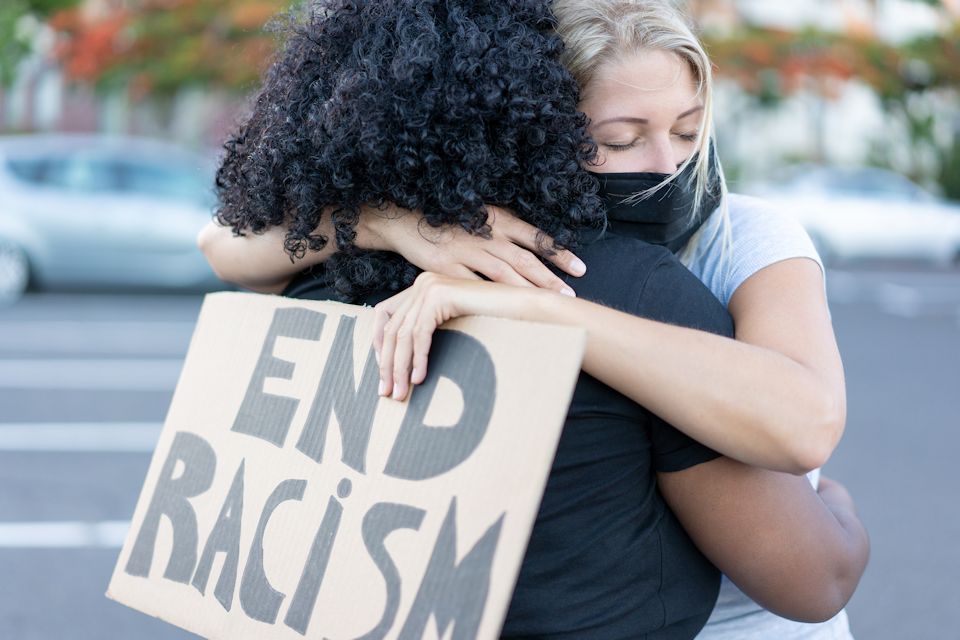It will take more than good intention to dismantle institutional racism in The Michigan Conference says the Rev. Dwayne Bagley.
DWAYNE BAGLEY
Superintendent, Greater Southwest District
I was in session with our District Committee on Ministry (DCOM) last Tuesday while the country awaited the verdict in the trial of Minneapolis Police Officer Derrick Chauvin. The death of George Floyd at Chauvin’s hands was a bellwether in the long history of racially specific violence directed at black men by law enforcement officers in this country. The shock and outrage generated by that singular event, stacked upon a score or more of similar occurrences which evidenced the fact that Floyd’s death in Minneapolis was not an aberration or even that surprising, prompted me to raise my considerable lily-white encumbrance from my LA-Z-Boy, apply a judicious amount of sunscreen, and join a Black Lives Matter march in my community last summer.
So, the trial was on my mind during the silence that followed the DCOM Chair’s request for someone to close our meeting with prayer. In my experience, the DS is everybody’s “go-to” when no one else wants to place heartfelt prayer concerns before the Throne of Grace, and so I was volunteered. My prayer that afternoon was that of a guilty bystander. I am someone who gets to choose whether to pay up personally or stand idly by while feigning frustration that I do not know what to do or how to begin.
Half-remembering a line from a black leader a middle-aged white guy like me feels comfortable quoting, I acknowledged that the moral arc of the universe bends toward justice but that, from our vantage point, that arc seemed exceedingly long. So, I prayed that God might move in ways only God could and asked the Holy Spirit to give the moral arc of the universe a push in the right direction.
Shortly after I arrived home that evening, I heard the verdict and, for the first time in my life, found myself in complete alignment with the Rev. Al Sharpton as he gave God thanks for answered prayer. By the next morning, a round of email messages, Facebook posts, and talking heads affirmed the verdict as a necessary first step, but only the first in many that needed to follow.
I found myself in agreement with all the other old white liberals in my circle of acquaintance, but instead of allowing the satisfaction that we were all of the same mind to soothe my conscience, I began to wonder what next step to take. It would be easy to take that next step in the direction of telling other people and institutions what they should do. However, an honest assessment of our current practice reveals that the Michigan Conference of the United Methodist Church and the people who are part of this connection do not possess the moral authority to focus anywhere but inward when it comes to rooting out racism. Overt and covert racism has been at work in our church since its founding. The truth is that we have allowed it to continue, lamented but largely unchecked up until this day.
Because of my vantage point as a member of the Michigan Area Cabinet, I feel the grip racism has on our collective life every time my colleagues and I attempt to make a cross-racial appointment. If you read as many Annual Church Profile forms as I have, you would think that every church in our Annual Conference is prepared, willing, and ready to accept a cross-racial appointment, as evidenced by the fact that SPRCs universally respond to that question on the form with a single word affirmative. No one on the Cabinet takes that word for granted because we realize from our own experience with churches that the theory of accepting and the practice of actually accepting a cross-racial appointment are not the same things.
Every time we consider making a cross-racial appointment, we ask whether the church and community would accept it. Without exception, my colleagues at the Cabinet Table respond, “I don’t know. I’ll have to ask.” Personally, I don’t do much asking because I think I already know the heart-breaking answer. And on those occasions when I have asked, even the most liberal congregations in my district have answered, “I don’t think we’re ready for that yet.” It would be tempting to allow that response to settle the matter. I have succumbed to that temptation more often than I wished, framing my gutlessness as an attempt to do no harm to the pastor facing appointment in a parish that isn’t ready to receive their gifts.
I realize that paving the road ahead with that kind of good intention absolutely will not lead us toward taking the next steps toward dismantling institutional racism in the Michigan Conference. And while many feel that demons like white racism are in a class of institutional maladies that can only be exorcised through prayer, I propose this: a zero-tolerance policy for white racism in our Annual Conference, beginning with pastoral appointments. Any church that protests that it is not yet ready would be given one year to make ready. If, after that year of preparation, the congregation remains unwilling, they will be asked to leave the United Methodist connection because their values and practice are not in line with our doctrinal statements, General Rules, and Social Principles.
For those who might find such a modest proposal extreme, untimely, and unacceptable, I offer a suggestion which I have taken to heart, look into the mirror you keep in your prayer closet and ask yourself why? An honest answer to that question may well be your first step toward dismantling racism.
Last Updated on May 3, 2021

